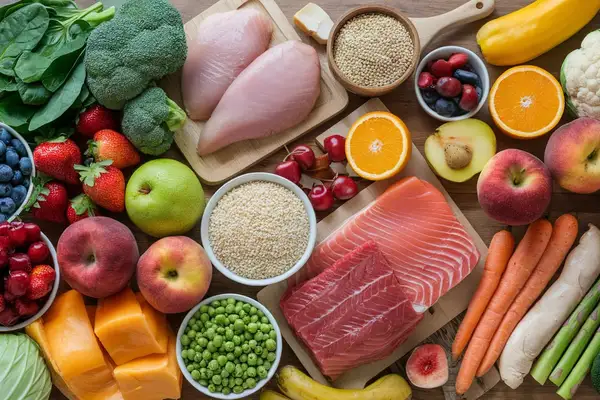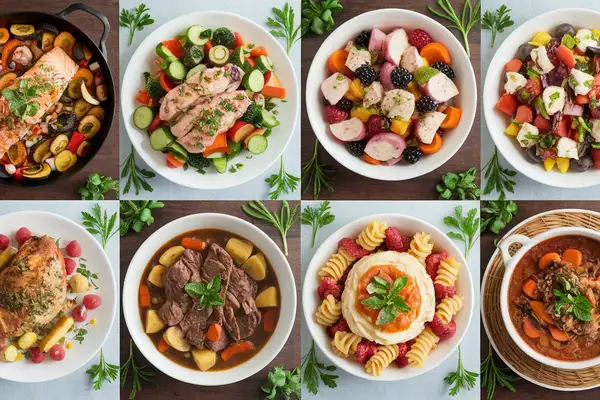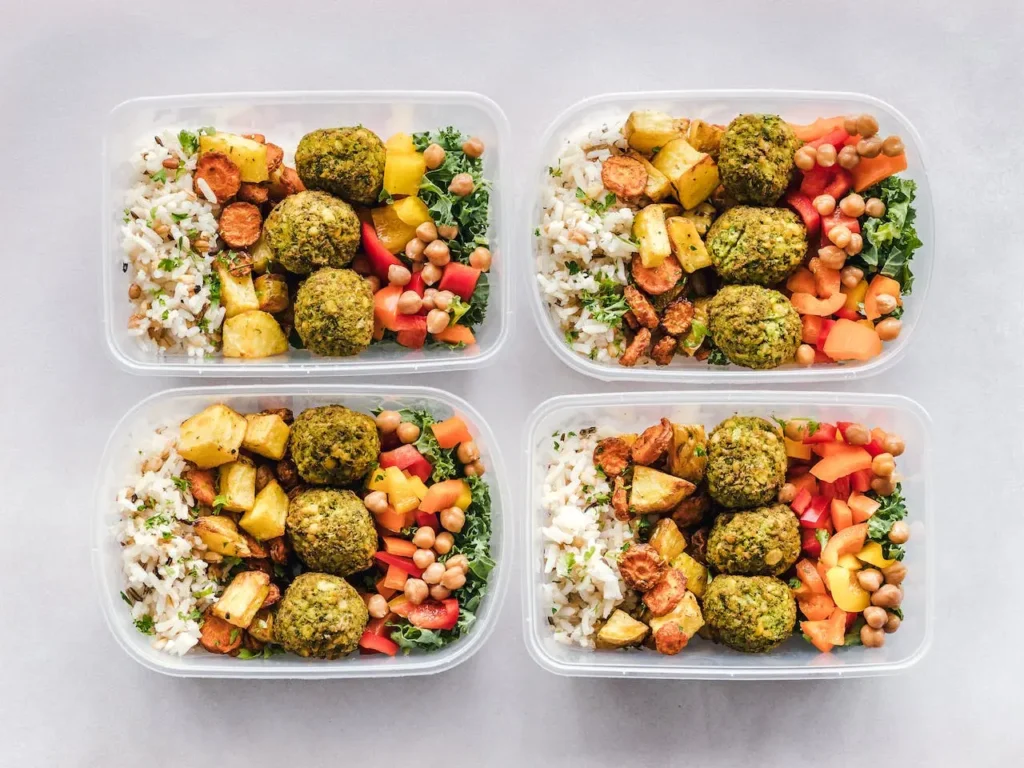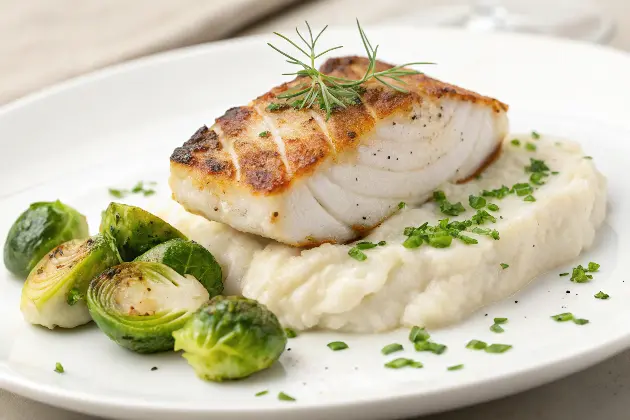7-Day UTI Diet Plan: Best Antioxidant Foods For UTIs
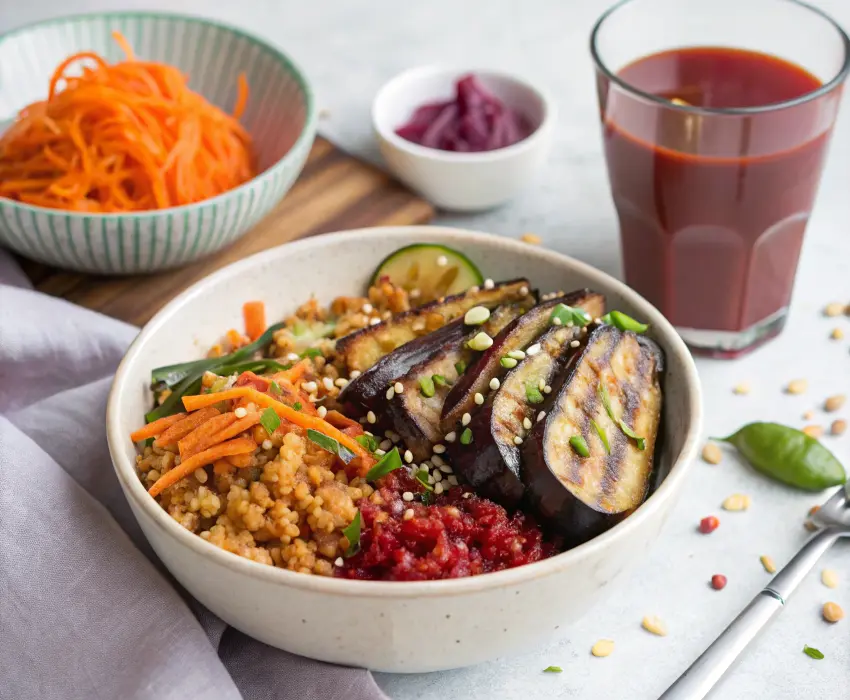
This post may contain affiliate links, meaning I may earn a commission if you make a purchase, at no extra cost to you. I only recommend products I trust. Thank you for your support.
Urinary tract infections (UTIs) are a common and uncomfortable health issue that affects millions of people each year.
These infections occur when bacteria enter the urinary tract, causing inflammation, pain, and a range of other unpleasant symptoms.
UTIs can be caused by a variety of factors, including poor hygiene, sexual activity, pregnancy, diabetes, and even certain medications.
When it comes to managing a UTI, understanding the impact of your diet is crucial. Certain foods can exacerbate UTI symptoms, while antioxidant rich foods can help alleviate discomfort and support recovery.
A well balanced UTI diet can play a significant role in preventing and managing UTIs. Incorporating a variety of foods rich in certain nutrients can contribute to overall urinary tract health.
By being mindful of what you eat, you can potentially reduce the risk of developing a UTI and ease discomfort when you feel it coming on.
Additionally, following a 7 day UTI diet plan that includes UTI foods to eat can aid in promoting a healthy urinary system.
This article provides an overview of foods to avoid with UTI and UTI foods to eat offering insights into the UTI diet, a fundamental aspect of UTI care.
UTI Diet Plan
A UTI diet plan typically includes antioxidant foods that can help prevent and manage urinary tract infections. These antioxidant rich foods are chosen based on their ability to support urinary health, reduce inflammation, and boost the immune system.
Foods to Avoid with UTI
When dealing with a urinary tract infection (UTI), it’s important to be mindful and avoid certain foods that can potentially exacerbate symptoms or irritate the bladder.
Here are some foods to avoid with UTI:
1. Sugary Foods:
These sugary foods contain high amounts of added sugars, which can promote the growth of bacteria in the urinary tract, potentially worsening or prolonging an infection.
- Candy
- Cakes
- Cookies
- Soda
- Sweetened fruit juices
- Pastries
- Sugary cereals
- Ice cream
- Sweetened yogurt
2. Highly Processed Foods:
These foods contain high amounts of preservatives and additives that can trigger inflammation and irritate the bladder lining, potentially exacerbating UTI symptoms such as pain and frequency of urination.
- Chips
- Crackers
- Fries
- Bacon
- Sausages
- Ham
- Deli meats
- Hot dogs
- Pepperoni
- Salami
3. Spicy Foods:
Excessive amounts of spices exacerbate UTI symptoms by causing additional inflammation. This increased inflammation can aggravate UTI symptoms, making them more severe and painful.
- Hot peppers (jalapeños, habaneros)
- Spicy sauces (hot sauce, sriracha)
- Spicy curries
- Spicy salsa
- Chili powder
- Cayenne pepper
- Wasabi
4. Caffeine:
Caffeinated drinks have diuretic effects and are known bladder irritants. They cause the bladder muscles to contract more frequently, which may increase the sensation of needing to urinate urgently and cause additional discomfort.
- Coffee
- Black tea
- Energy drinks
- Certain sodas (cola, Mountain Dew)
- Chocolate
- Some pre-workout supplements
5. Alcohol:
Alcoholic beverages contribute to systemic inflammation and can irritate the bladder leading to increased pain, discomfort, and dehydration.
- Beer
- Wine
- Spirits (whiskey, vodka, rum, gin)
- Cocktails (margaritas, martinis, mojitos)
- Liqueurs (Baileys, Amaretto)
- Hard cider
6. Artificial Sweeteners:
Artificial sweeteners may irritate the bladder in some individuals and alter the pH balance of urine, potentially making it more irritating to the bladder and urinary tract, which can intensify UTI symptoms..
- Aspartame (Equal, NutraSweet)
- Saccharin (Sweet’N Low)
- Sucralose (Splenda)
- Acesulfame K (Sunett, Sweet One)
- Sorbitol
- Mannitol
- Xylitol
7. Acidic Foods:
Acidic foods and fruits increase the acidity of urine which further irritates the already inflamed urinary tract, leading to increased pain and discomfort.
- Oranges
- Lemons
- Limes
- Grapefruits
- Tomatoes
- Pineapples
- Vinegar-based dressings
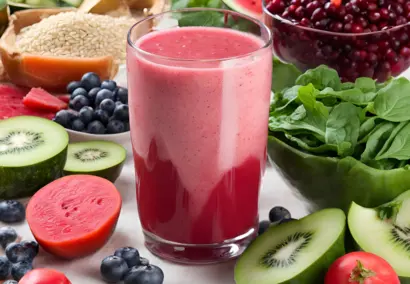
UTI Foods to Eat
While certain foods can exacerbate UTI symptoms, others can actually help prevent and manage these infections.
Incorporating the following antioxidant foods into your diet can support your urinary tract health and reduce your risk of developing a Urinary Tract Infections.
Here are the UTI foods to eat:
1. Cranberries:
Cranberries contain compounds that can help prevent bacteria from adhering to the walls of the urinary tract, making it more difficult for them to cause an infection.
- Cranberry juice (unsweetened)
- Fresh cranberries
- Cranberry supplements
2. Blueberries:
Like cranberries, blueberries contain antioxidants and compounds that can help prevent bacterial adhesion.
- Fresh blueberries
- Blueberry juice
- Blueberry smoothies
3. Probiotics:
Foods rich in probiotics can help maintain a healthy balance of bacteria in the urinary tract, reducing the risk of infection.
- Yogurt with live cultures
- Kefir
- Sauerkraut
- Kimchi
- Fermented vegetables
4. Beverages and Hydration Foods:
Staying hydrated can help flush out bacteria and prevent UTIs and dilute urine, reducing the risk of UTIs.
- Water
- Watermelon
- Green tea
- Chamomile tea
- Hibiscus tea
- Cucumber
5. Garlic:
Garlic has natural antimicrobial properties that can help fight the bacteria responsible for UTIs.
- Fresh garlic
- Garlic supplements
- Garlic powder
6. Leafy Greens:
These leafy greens are rich in vitamins, minerals, antioxidants, and water content, which can support urinary tract health and reduce the risk of UTIs.
- Spinach
- Kale
- Swiss chard
- Romaine lettuce
- Arugula
- Collard greens
- Watercress
- Mustard greens
- Beet greens
7. Vitamin C Rich Foods:
Vitamin C rich foods can be beneficial for urinary tract health and may help prevent UTIs.
- Kiwi
- Strawberries
- Bell peppers (especially red peppers)
- Guava
- Papaya
- Brussels sprouts
8. Whole Grains:
Whole grains are high in fiber and can help maintain a healthy digestive system, which is important for overall urinary tract health.
- Oats
- Quinoa
- Brown rice
- Barley
- Buckwheat
- Whole wheat foods
- Farro
- Millet
7-Day UTI Diet Plan
This Urinary Tract Infections (UTI diet) features antioxidant rich foods that help reduce inflammation, support immune function, and promote a healthy urinary tract.
This UTI diet aims to include antioxidant foods and probiotics that can help prevent UTIs by promoting urinary tract health and reducing the risk of infection.

Day 1
Breakfast:
- Cranberry Almond Chia Pudding: Chia pudding with almond milk, cranberries, and cinnamon. (2 tbsp chia seeds, 1/2 cup almond milk, 1 tbsp dried cranberries, 1/4 tsp cinnamon)
Lunch:
- Spinach & Avocado Salad with Walnuts: Spinach, avocado, walnuts, and pomegranate dressing. (1 cup spinach, 1/2 avocado, 6 walnuts, 1 tbsp pomegranate juice)
Dinner:
- Tinola (Filipino Ginger-Garlic Chicken Soup): Chicken simmered with ginger, garlic, chayote, and leafy greens. (6 oz chicken, 2 cloves garlic, 1-inch ginger, 1 chayote, 1 cup leafy greens, 2 cups broth)
Snacks:
- Greek Yogurt with Honey & Walnuts (1/2 cup Greek yogurt, 1 tsp honey, 1 tbsp walnuts)
- Carrot Sticks with Roasted Beet Hummus (1/4 cup hummus, 1 cup carrot sticks)

Day 2
Breakfast:
- Probiotic Oatmeal with Raspberries: Oatmeal cooked with almond milk, topped with Greek yogurt and raspberries. (1/2 cup oats, 1/2 cup almond milk, 2 tbsp Greek yogurt, 1/4 cup raspberries)
Lunch:
- Mediterranean Mezze Plate: Hummus, whole-grain pita, cucumbers, cherry tomatoes, and olives. (1/4 cup hummus, 1 whole-grain pita, 1/2 cucumber, 6 cherry tomatoes, 6 olives)
Dinner:
- Vegetable and Bean Stew: Lentils, kidney beans, carrots, celery, and tomatoes simmered in vegetable broth. (1 cup lentils, 1/2 cup kidney beans, 1 carrot, 1 celery stalk, 1 cup tomatoes, 2 cups vegetable broth)
Snacks:
- Pumpkin Seeds (2 tbsp pumpkin seeds)
- Sliced Apple with Almond Butter (1 small apple, 1 tbsp almond butter)
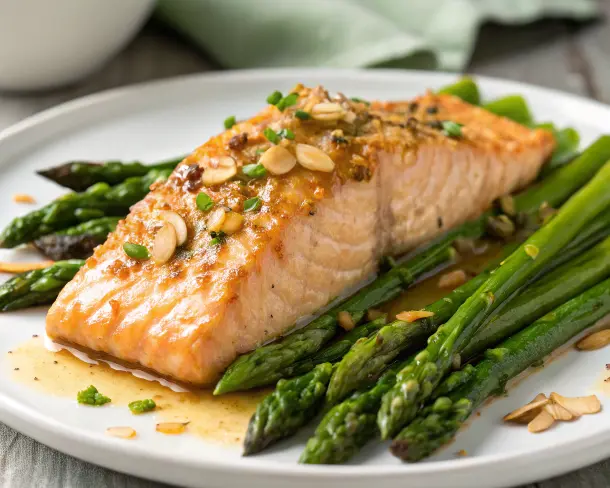
Day 3
Breakfast:
- Spinach & Turmeric Scramble: Scrambled eggs with spinach and turmeric. (2 eggs, 1/2 cup spinach, 1/4 tsp turmeric)
Lunch:
- Garlic Ginger Salmon with Steamed Asparagus: Baked salmon with garlic, ginger, and olive oil, served with asparagus. (4 oz salmon, 1 garlic clove, 1/2 tsp ginger, 1/2 cup asparagus)
Dinner:
- Zucchini Noodles with Avocado Pesto & Shrimp: Spiralized zucchini with avocado pesto and grilled shrimp. (1 zucchini, 1/2 avocado, 1 tbsp olive oil, 6 shrimp, fresh basil to taste)
- Roasted Beet & Chickpea Salad: Beets, chickpeas, arugula, and a lemon tahini dressing. (1/2 cup beets, 1/2 cup chickpeas, 1 cup arugula, 1 tbsp tahini, juice of 1/2 lemon)
Snacks:
- Kefir with Ground Flaxseeds (1/2 cup kefir, 1 tbsp ground flaxseeds)
- Handful of Pumpkin Seeds (1/4 cup pumpkin seeds)

Day 4
Breakfast:
- Berry Kefir Pancakes: Whole-grain pancakes made with kefir, topped with mixed berries. (1/2 cup kefir, 1/2 cup mixed berries, 1/4 cup whole-grain flour)
Lunch:
- Coconut Curry Chickpeas with Roasted Carrots: Chickpeas in a coconut curry sauce with roasted carrots. (1/2 cup chickpeas, 1/2 cup coconut milk, 1/2 tsp turmeric, 1/2 cup carrots)
Dinner:
- Rainbow Veggie Wrap with Hummus: Whole-grain wrap with hummus, bell peppers, shredded carrots, and beets. (1 whole-grain wrap, 1/4 cup hummus, 1/4 cup shredded carrots, 1/4 cup shredded beets)
Snacks:
- Sauerkraut with Carrot Sticks (1/4 cup sauerkraut, 1 cup carrot sticks)
- Fresh Fig Halves (2 figs)
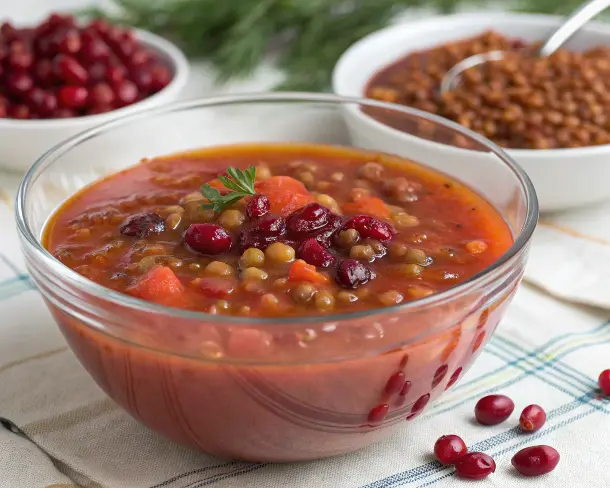
Day 5
Breakfast:
- Berry Kefir Smoothie: Blended kefir, blueberries, and flaxseeds. (1 cup kefir, 1/2 cup blueberries, 1 tbsp flaxseeds)
Lunch:
- Turmeric Quinoa Bowl: Quinoa, turmeric, roasted cauliflower, and pumpkin seeds. (1/2 cup cooked quinoa, 1/2 tsp turmeric, 1/2 cup roasted cauliflower, 1 tbsp pumpkin seeds)
Dinner:
- Cranberry Lentil Soup: Lentils simmered with garlic, turmeric, and unsweetened cranberry juice. (1/2 cup lentils, 1 garlic clove, 1/2 tsp turmeric, 1/4 cup cranberry juice)
- Zucchini Noodles with Avocado Pesto & Miso Tofu: Spiralized zucchini noodles with creamy avocado pesto and miso-marinated tofu. (1 cup zucchini noodles, 1/2 avocado, 1 tbsp miso, 4 oz tofu)
Snacks:
- Greek Yogurt with Chia Seeds (1/2 cup Greek yogurt, 1 tsp chia seeds)
- Almonds & Pomegranate Seeds (10 almonds, 1/4 cup pomegranate seeds)
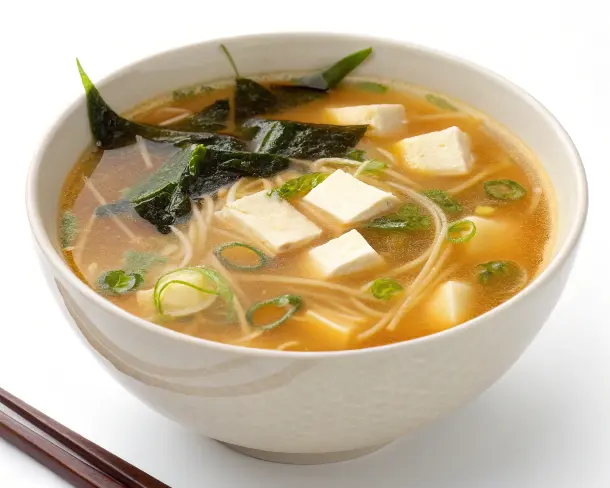
Day 6
Breakfast:
- Mango Kefir Parfait: Layered kefir, mango chunks, and ground flaxseeds. (1/2 cup kefir, 1/2 cup mango, 1 tsp flaxseeds)
Lunch:
- Beet & Goat Cheese Salad: Roasted beets, arugula, goat cheese, and walnuts. (1/2 cup beets, 1 cup arugula, 2 tbsp goat cheese, 6 walnuts)
Dinner:
- Miso Soup with Tofu & Seaweed: Miso broth with tofu and wakame. (1 cup miso broth, 1/4 cup tofu, 1 tbsp wakame)
Snacks:
- Coconut Yogurt with Blueberries (1/2 cup coconut yogurt, 1/4 cup blueberries)
- Carrot & Celery Sticks with Hummus (1/2 cup veggie sticks, 1/4 cup hummus)
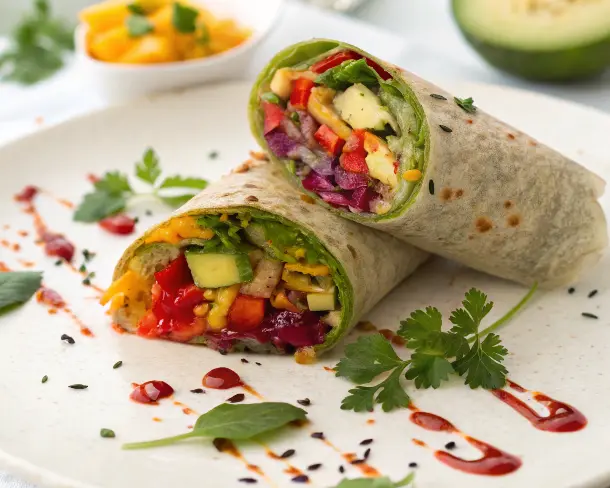
Day 7
Breakfast:
- Cranberry Coconut Yogurt Bowl: Coconut yogurt with unsweetened cranberry juice, flaxseeds, and walnuts. (1/2 cup coconut yogurt, 2 tbsp cranberry juice, 1 tsp flaxseeds, 4 walnuts)
Lunch:
- Kimchi Quinoa Bowl: Quinoa with kimchi, sesame seeds, and avocado. (1/2 cup cooked quinoa, 1/4 cup kimchi, 1 tsp sesame seeds, 1/2 avocado)
Dinner:
- Broccoli & Garlic Stir Fry: Stir-fried broccoli with garlic, sesame oil, and cashews. (1 cup broccoli, 1 garlic clove, 1 tsp sesame oil, 2 tbsp cashews)
- Fermented Veggie Wrap: Whole-grain wrap with avocado, sauerkraut, and spinach. (1 whole-grain wrap, 1/2 avocado, 1/4 cup sauerkraut, 1/2 cup spinach)
Snacks:
- Green Tea with Dark Chocolate (1 cup green tea, 1 oz dark chocolate)
- Goji Berries & Walnuts (2 tbsp goji berries, 6 walnuts)
Essential Tips to Avoid UTIs
Here are 10 essential tips to avoid UTIs and keep your urinary tract healthy:
- Drink Plenty of Water: Increase your fluid intake (at least 8 glasses of water) daily to flush out bacteria from your urinary tract.
- Frequent Urination: Urinate frequently to help expel bacteria from the bladder and prevent its multiplication.
- Wipe from Front to Back: When using the restroom, ensure that you wipe from front to back to prevent the spread of bacteria from the anus to the urethra.
- Urinate After Intercourse: Urinating after sexual activity can help flush out bacteria that may have entered the urethra.
- Maintain Good Genital Hygiene: Keep the genital area clean and dry to minimize bacterial growth.
- Avoid Irritating Foods: Steer clear of known bladder irritants such as caffeine, alcohol, and spicy or acidic foods.
- Avoid Holding Urine: Don’t delay urination when you feel the need to go; holding urine can allow bacteria to multiply.
- Consume Probiotics: Incorporate probiotic rich foods or supplements to promote a healthy balance of bacteria in the gut and urinary tract.
- Wear Breathable Clothing: Choose cotton underwear and loose-fitting clothing to allow air circulation and minimize moisture in the genital area.
- Consider Prophylactic Antibiotics: Consume yogurt, kefir, sauerkraut, and kimchi to maintain healthy gut and vaginal flora.
Resources
The following resources were used in compiling this article about foods to avoid with UTI providing detailed insights about the UTI diet plan, foods that help UTI, and UTI diet chart.
- Dietary Factors Affecting Urinary Tract Infection
- Dietary factors protecting women from urinary tract infection
- Top Foods that Can Help a UTI
- Cranberry Juice in Urinary Tract Infections in Women
Conclusion
Maintaining a UTI diet is a crucial component of managing and preventing these frustrating infections.
Now that you know what foods to avoid with UTI and UTI foods to eat, crafting a balanced UTI diet becomes crucial.
A well structured 7 day UTI diet plan should prioritize foods that help with UTI while avoiding those that can exacerbate symptoms.
Remember, the key to a successful UTI diet plan is consistency and patience. It may take time for your body to fully recover, so be sure to listen to your body and make adjustments as needed.
By making mindful food choices and staying hydrated, you can support your body’s natural healing process and enjoy a speedy recovery.
Don’t hesitate to consult with your healthcare provider if you have any concerns or questions about managing your UTI.
- Foods to avoid while taking Contrave
- Ozempic weight loss plan
- Ozempic cost at Costco
- Foods to avoid while taking Trulicity
- List of foods to lower alkaline phosphatase
- 7 day low-sodium diet meal plan
- 7 day meal plan for low potassium diet
- High protein diet meal plan for weight loss
- 7-day elimination diet meal plan
- The best endometriosis diet plan
- 9 proven strategies to lose PCOS belly fat quickly
- The 90-30-50 diet plan for weight loss
- 7-day bone broth diet plan
Frequently Asked Questions
How much water should you drink when you have a UTI?
It’s recommended to drink at least 8 cups (64 ounces) of fluids per day when you have a UTI. This helps flush out the bacteria and keep your urinary tract hydrated.
Can cranberry juice help treat a UTI?
Yes, cranberry juice can be a helpful complementary treatment for UTIs. The compounds in cranberries can prevent bacteria from adhering to the urinary tract, making it harder for infections to take hold.
How long does it typically take to recover from a UTI?
The recovery time for a UTI can vary, but with proper treatment and a UTI-friendly diet, most people see improvement within 2-3 days.
However, it’s important to complete any antibiotic treatment prescribed by your healthcare provider to fully clear the infection.
Can you eat eggs with a UTI?
Yes, you can generally eat eggs when you have a urinary tract infection (UTI). Eggs are a good source of protein and nutrients, and they are not known to exacerbate UTI symptoms or interfere with UTI treatment.
Is chicken OK for UTI?
Chicken is generally safe to consume when you have a urinary tract infection (UTI), as long as it is cooked thoroughly to eliminate any harmful bacteria.
Properly cooked chicken reduces the risk of UTIs associated with bacterial contamination.
However, it’s essential to practice safe food handling and cooking techniques to ensure chicken is cooked to the appropriate temperature, which can help prevent UTIs related to foodborne bacteria.
What makes a UTI worse?
Spicy, Acidic, and Irritating Foods: Spicy foods and those high in acid can irritate the bladder and worsen UTI symptoms.
Alcohol and Caffeine: These can irritate the bladder and should be avoided during a UTI.
Bacterial Exposure: Consuming food contaminated with bacteria can contribute to UTIs, with poultry being a known reservoir for the bacteria that cause urinary tract infections.
Lack of Hydration: Inadequate fluid intake can hinder the body’s ability to flush out bacteria from the urinary tract.
